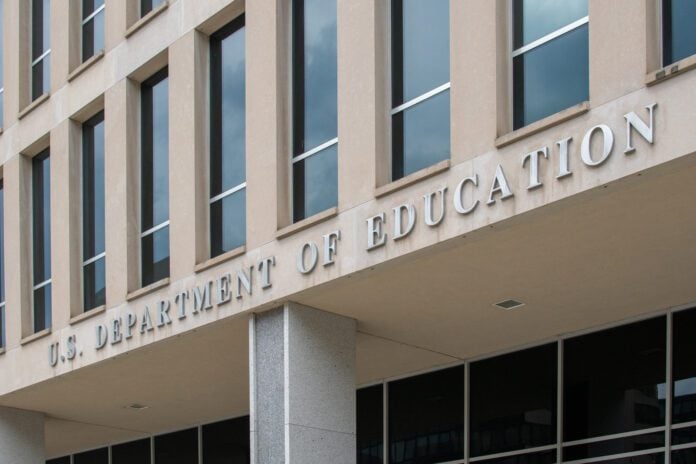
Let’s talk about the Department of Education (ED).
On March 20, President Donald Trump signed an executive order to dissolve several functions of ED, including cutting funding and laying off nearly half its workforce. Closing the department in its entirety would take an act of Congress, sending several critical education decisions back to the state level. But what exactly is the Department of Education?
“Closing the Department does not mean cutting off funds from those who depend on them — we will continue to support K-12 students, students with special needs, college student borrowers, and others who rely on essential programs,” Linda McMahon, secretary of education, said in a statement.
The ED is not as old as most people may think. Established by Congress on May 4, 1980, the agency’s mission is simply to ensure everyone in the country has equal access to a quality education.
The ED works in tandem with the states, assisting local school systems and engaging nonprofits to improve the quality of education. ED encourages parents and students to participate in federal education programs while working to maintain the effectiveness and accountability of these programs, according to the U.S. Department of Education’s website.
There are quite a few misconceptions about what the ED does and does not do — like setting the curriculum or funding scholarships.
At the federal level, the education department is responsible for establishing educational policies, distributing grants and loans and enforcing Civil Rights laws within educational spaces. ED also oversees education-based research, collecting data of current trends and best practices, according to the website.
READ MORE: How Artificial Intelligence affects our everyday lives
Many public schools rely on federal funding from ED for programs and staff that oversee policies such as Title I, Title II of Americans with Disabilities Act (ADA), Title VI, Title IX and IDEA — which support IEP and 504 plans — all of which fall under the jurisdiction of the U.S. Department of Education.
The education department also funds the Free Application for Federal Student Aid (FAFSA) and the Pell Grant.
However, programs such as the National School Lunch Program and Head Start are administered by different federal agencies.
Establishing schools and colleges, developing curricula, setting enrollment and graduation criteria, determining state education standards and developing and implementing testing fall to the states, according to Section 103[b], Public Law 96-88.
At the state level, the education department oversees K-12 public education in addition to implementing policies created by state legislators and the governor. The Indiana Department of Education (IDOE) is led by Dr. Katie Jenner — the state’s first secretary of education, appointed in 2021 and chair of the State Board of Education.
Some of IDOE’s key responsibilities include, but are not limited to, administering standardized testing, overseeing curriculum and textbooks, teacher licensing, managing federal and state grant programs, providing professional development and supporting resources to educators and special education needs.
IDOE also collects data on school performance and progress and is responsible for intervening when schools underperform.
The U.S. Department of Education still exists at the time of publication. To learn more about the agency at the federal level, visit ed.gov. To learn more about the Indiana Department of Education, visit in.gov/doe/about.
Contact Arts & Culture Reporter Chloe McGowan at 317-762-7848. Follow her on X @chloe_mcgowanxx.
Chloe McGowan is the Arts & Culture Reporter for the Indianapolis Recorder Newspaper. Originally from Columbus, OH, Chloe has a bachelor's in journalism from The Ohio State University. She is a former IndyStar Pulliam Fellow, and has previously worked for Indy Maven, The Lantern, and CityScene Media Group. In her free time, Chloe enjoys live theatre, reading, baking and keeping her plants alive.




